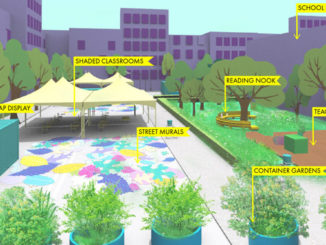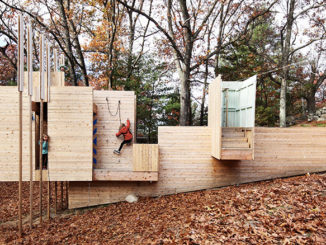As landscape architects and designers, we need to keep up to date with the latest industry trends, regulations, and technologies and improve our base design and technical knowledge. Also, many landscape architecture organisations and institutes require members to under a certain number of hours or accumulate points as part of their Continued Professional Development.
How to improve your skills and knowledge through Continued Professional Development(CPD) can be achieved in the following ways:
Set annual goals
To achieve the CPD requirements of your landscape institute, it is best to set learning goals at the start of the year. This should include base knowledge (soils, plants, water, ecology, regulations, etc.) and some extended knowledge goals in topics that will improve your knowledge and increase opportunities for career advancement. These could include environment (climate change, resiliency, ecology), development trends (residential, transport, educational, etc.), practice management (accounting, insurances, finance, risk, compliance), business development (marketing, proposals, sales), project management (PMP, construction management, client management), technology (Revit, Drone/UAV Licencing, GIS,). As you can see, there are many topics to learn about, and this is not an exhaustive list.
To improve your overall knowledge, it is best to pick three or four areas which include 1-2 areas you already have an interest in and 2-3 areas that you have little to some knowledge in. Undertaking this approach allows you to explore topics within each area.
Learn with your company
It may also be beneficial to undertake this goal-setting exercise with your employer to ensure that you build upon your strong areas of knowledge and improve your weaker skills. Some employers may have CPD or Training programs or internal groups to assist you in reaching your goals.
Join groups or set up a group
Improving your knowledge by yourself can be rewarding, but others find that learning in groups can be more beneficial. For example, some landscape organisations have knowledge or professional groups to join and meet more landscape architects. Alternatively, you could set up a group of colleagues or alumni to meet regularly to share knowledge and information.
Reading
Reviewing and reading landscape blogs such as WLA is a starting point, but there are other ways to keep up to date and improve your knowledge. However, there are also many journals available online through your university or google scholar or similar websites. These journals offer a great way to discover the latest studies and provide further reading material by reading the cited references.
Another good source of information is industry organisations such as Horticultural Institutes, Plant Nursery Organisations, Concrete/Pavement Associations, Friends groups, University Extensions and many other groups who provide whitepapers and studies on various topics of interest.
Listening
There are landscape architecture podcasts and design podcasts available on Spotify, Itunes, etc., which offer a great way to learn from other professionals whilst on your commute or working from home. These include The Landscape Architecture Podcast, City as Landscape and Terragrams (recently republished), to name a few.
Watch
There are numerous lectures, seminars, how-to (Revit, sketching, etc.) videos on Youtube, Vimeo, Youku and more. It can be hard to focus on listening intently, but you have the opportunity to rewind, pause and change the speed to learn at your pace. A great free tool that has hours of learning available. Some channels include Environment for Revit, Daniel Tal Sketchup/Revit, Linescapes, reSITE and many more.
Writing
Another way to learn about a topic is to research and write your own article or paper that you can publish on your company website, industry blog (such as WLA), and submit it to a landscape architecture magazine. Remember to set out your objectives, or a clear outline is key to writing a good article or paper.
Lectures & Seminars
Short seminars (1-3 hours to full day) are a great way to attend an event and learn about a topic or new technology/trend. Attending seminars in your local city is a great way to network and increase your knowledge. Many seminars have gone online with virtual speakers and virtual conferences and exhibitions in the past year, making it easier to attend. Look at your local university and college websites to learn about upcoming lectures and ask your local industry organisations (not just landscape) about seminars.
Conferences
A two or three-day conference is a great way to learn a great deal about a varied range of topics in a short space of time. Although the event and travel cost may be more than other activities or events, they can also act as a good way to reinvigorate your creativity and learning, which is often hard to put a price on. There are numerous local, regional and international conferences put on by
Site Visits/Study Tours
One of the best ways to learn about landscape architecture is to go to sites (completed or under construction) and walk around the site and see what works and what doesn’t work. The best way to experience a site is to sit and observe for an extended period of time as sites can change throughout the day.
Going on a study tour or road trip is also a great way to learn about different designers, places, typologies and, most of all, a great way to relax away from the office or home office. Just be warned that your friends, partner or family will tire of you taking hundreds of photos of plazas, furniture, paving and the like, so remember to take along a ball or other activity for everyone to join in.
Go beyond landscape
Often we are comfortable learning more about landscape architecture. However, stretching to other areas of the design industry or business topics is key to becoming a well-rounded practitioner, especially as landscape architects work with many other professions and client organisations.
How to improve your skills through Continued Professional Development was written by Damian Holmes, Founder and Editor of WLA. A registered Landscape Architect with over 20 years of experience.
Email damian@worldlandscapearchitect.com if you would like to discuss the above article.
Image Credit used for Cover: Flickr user unicef Ukraine
Did you like reading this article? We are committed to publishing more landscape architecture projects and articles like this one. We encourage you to become a WLA Supporter to support us in continuing to publish great content.
We also offer Sponsor and Partnerships packages to design firms and suppliers. Learn more about how you can sponsor WLA.
DISCLAIMER: This article is for educational purposes only. The content is intended only to provide a summary and general overview on matters of interest. It’s not intended to be comprehensive, nor to constitute advice. You should always obtain legal or other professional advice, appropriate to your own circumstances, before acting or relying on any of that content. This advice is general in nature.


